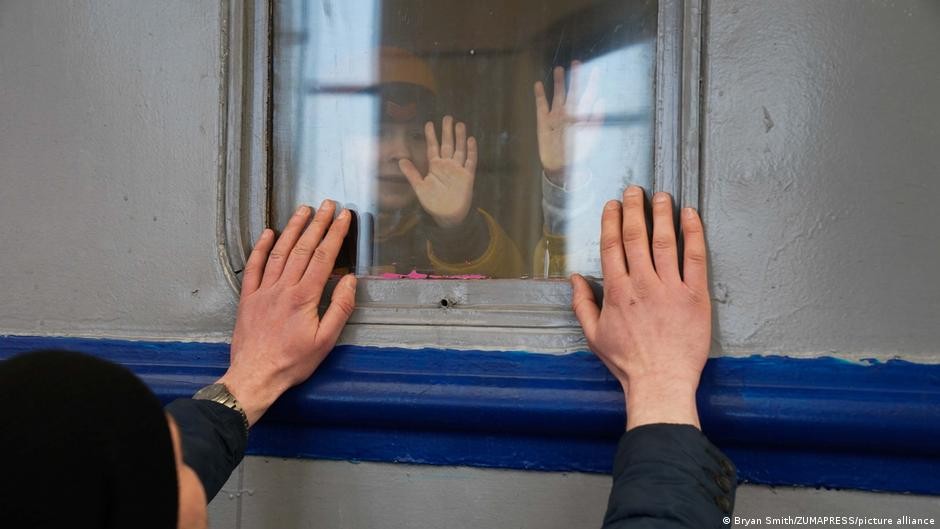They exit their cars, and then, the tears flow.
For the first time since fleeing the besieged city of Mariupol, Ukrainians arriving at a reception centre for displaced families realise they are finally on safe ground.
In Zaporizhzhia, just over 200 miles from Mariupol, an endless line of cars and buses streams into a retail parking lot, where volunteers register evacuees into an official database for internally displaced people.
These families join the one in four Ukrainians who have been forcibly displaced from their homes during the war, according to the International Organisation for Migration.
“Either you will die in the city, or you will try to leave it,” said Olga Rashevskaya, who arrived with her two children. “We decided that if there’s the slightest hope, we need to leave.”
Thousands of people arrive at the reception centre daily, and in total, around 40,000 people have been registered since the center opened on March 5, according to Oleksii Savytskyi, head of the department for youth, work and family in Zaporizhzhia.
The vast majority are escaping Mariupol, Savytskyi said, who added that most arrive in private cars. The coastal city has been under siege for over three weeks by Russian forces shelling it to rubble, killing thousands of civilians, according to Ukrainian officials — an estimate that cannot be independently verified.
Many families arrive in cars with handwritten signs taped to their windows displaying the word “children” in Russian, to indicate to Russian forces that they should be spared. White ribbons, in a show of peace, are tied onto car door handles.
The road to safety is fraught with risk — the journey can take days as families pass through 15 to 20 Russian checkpoints, where officers search vehicles and inspect bodies for patriotic tattoos. Sometimes, cars are rerouted onto dangerous side roads.
“You don’t know the streets, and which roads to take — what’s mined and what’s not, what is awaiting for you ahead,” said Elena Chapny, a police officer. “But you just hold the fear back because there is no other option.” Nastya Nadbaeva, 8, and her grandmother’s sister bear the scars of this perilous trip.











